How to potty train a puppy: A vet's guide
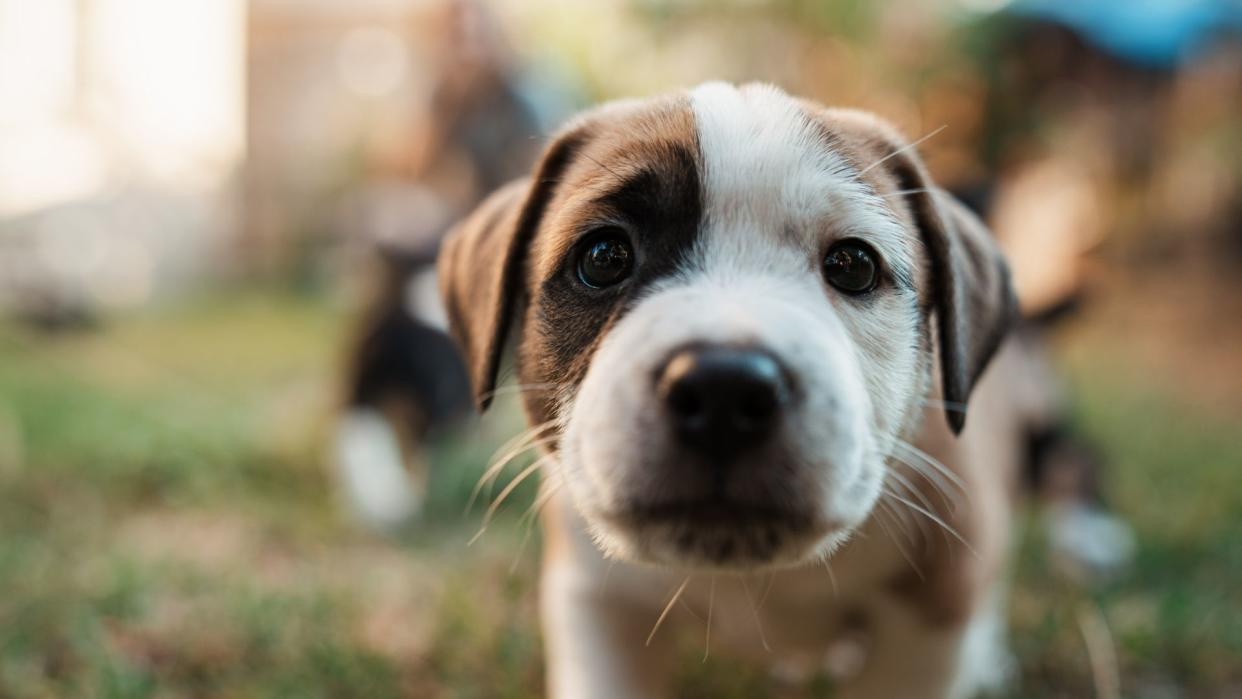
A new puppy in the home is a super exciting time and comes with its own tricky times, and learning how to potty train a puppy is one of them. They are filled with energy, love and watching them tackle this new skill will make them so proud of themselves.
Now, you’ve gone through your list of the best puppy toys, check. Best puppy food, check. Knowing how to potty train a puppy… maybe? While it may not be at the top of list when you are bringing home a puppy for the first time, it is super important and the more prepared you are the easier it will be for you and your puppy.
Establish a consistent potty training routine
The key to potty training your puppy is to be clear and consistent with your training. You can easily minimize accidents in the house by taking your puppy outside at the times when he is most likely to urinate or defecate. These times can include first thing in the morning, after a nap, after playing with some of the best dog puzzle toys, after a drink of water, and after meals.
By sticking to this routine, your puppy will have ample opportunity to potty in an appropriate place. Your puppy will also learn when to expect a trip outside, making it easier for them to learn to 'hold it' until you take them out. The more consistent all members of the family are with this routine, the faster your puppy will learn.
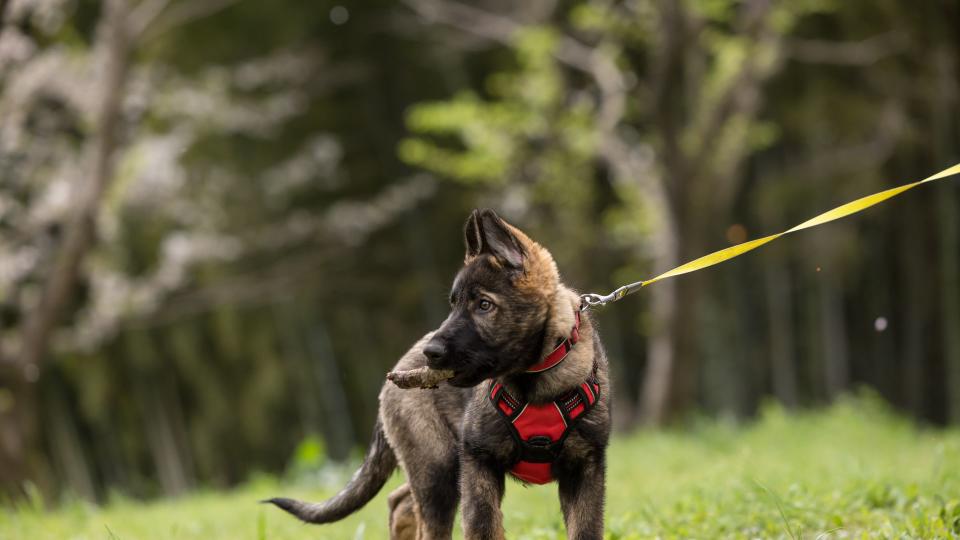
Remember, young puppies cannot hold their urine as long as an adult dog can. It’s important to get your puppy outside before they have a chance to relieve themselves in the house. For 8-week-old puppies, this can mean going outside every 2 hours. If you are unable to take your puppy outside this frequently, leave them in a confined area with an appropriate potty surface, such as a puppy pad or fake grass. As your puppy gets older, you can increase the interval time between trips to the yard.
PetRadar Editor, Sophie Bird knows first hand how tricky these first steps can be. She says, “Potty training can be really frustrating and it can feel like you’re constantly cleaning up accidents. It’s important to take a breath, and set your pup for success by setting a timer to take them outside (you can start small with just 10 minutes if need be) and then make a big deal when they go to the bathroom outside correctly.”
A good rule of thumb is to expect your puppy to 'hold it' no more than one hour for every month of age. For example, a three-month-old puppy can go outside every three hours, a four-month-old puppy can go outside every four hours, and so on. Remember that even as adults, some dogs can hold their urine longer than others, so tailor your expectations according to your dog’s individual needs
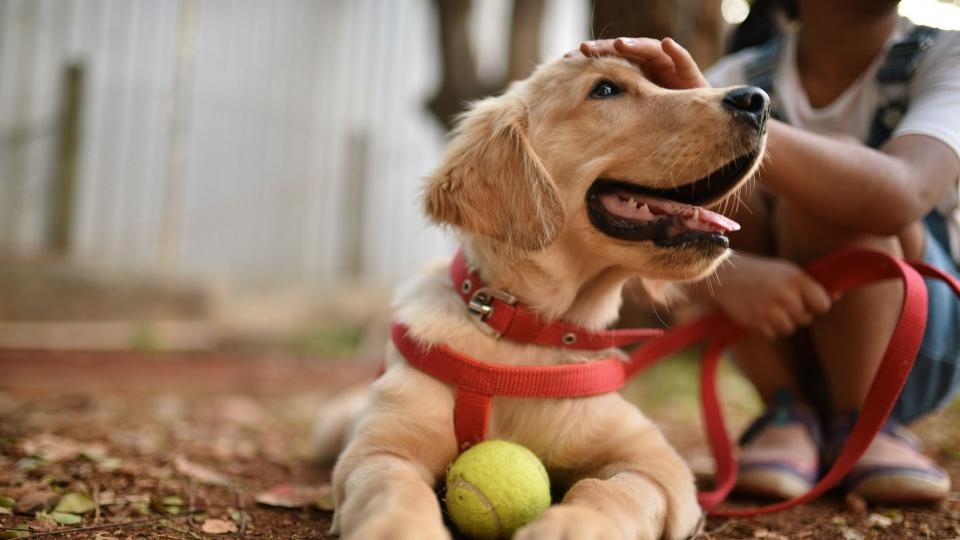
A common complaint from puppy owners is that their puppy will spend plenty of time playing outside, and then will urinate as soon as they get back in the house. To prevent this, make sure you’re not allowing your puppy to get distracted while they're outside. When you bring your puppy out, keep them on a leash, and stand quietly until they relieve themselves.
If they still have not done so after five minutes or so, bring them inside and put them back in their crate or exercise pen for 15 minutes, then try again. Repeat this cycle until they finally relieve themselves outside. As soon as your puppy has relieved themselves, praise and reward them. Now it’s time to play or enjoy some of the best puppy treats. This process can be time consuming at first, but from it your puppy will learn that going to the bathroom is the priority when they go outside.
Supervise your puppy closely during potty training
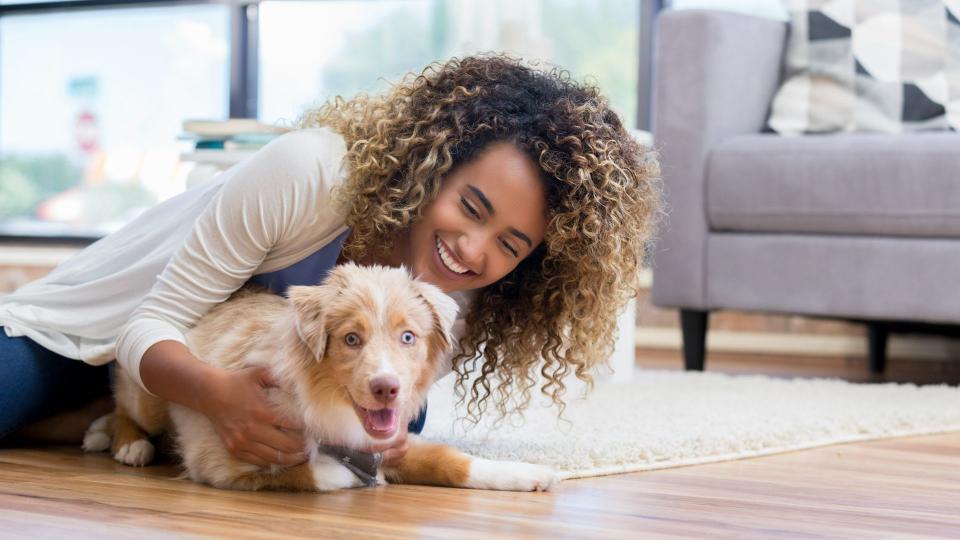
Accidents are more likely to happen when your puppy is left unsupervised. Always keep your puppy under your direct supervision throughout the potty training process. Keeping them on a leash while indoors will ensure that they do not wander away to urinate in the house. If you are unable to supervise your puppy directly, they should be kept in a contained area like one of the best dog crates or exercise pen. This area should include an appropriate potty surface, such as a puppy pad or fake grass.
When your puppy is indoors, watch closely for any signs that they need to relieve themselves. Sniffing the floor, circling, posturing, and wandering off alone are all signs that your puppy is about to urinate or defecate. If you see your puppy doing this in the house, interrupt their behavior by quickly and gently picking them up and rushing them outside. Never yell or startle your puppy, as this may frighten them. Once outside, place your puppy on the ground, and reward them as soon as they finish relieving themselves.
Reward good behavior and never use punishment
This is the cardinal rule of potty training – or any training, for that matter. Punishing your puppy will only teach them to be afraid of you and anxious about relieving themselves in your presence. Some dogs who are punished during potty training will learn to sneak off to an empty bedroom or other quiet area of the house to do their business. That’s because punishment does not teach the puppy where they can go, only that they're in trouble if you see them. If your puppy has an accident in the house, just clean it up calmly and quietly. Hitting, yelling, or rubbing the puppy’s nose in his mess are never appropriate training techniques, and should be avoided.
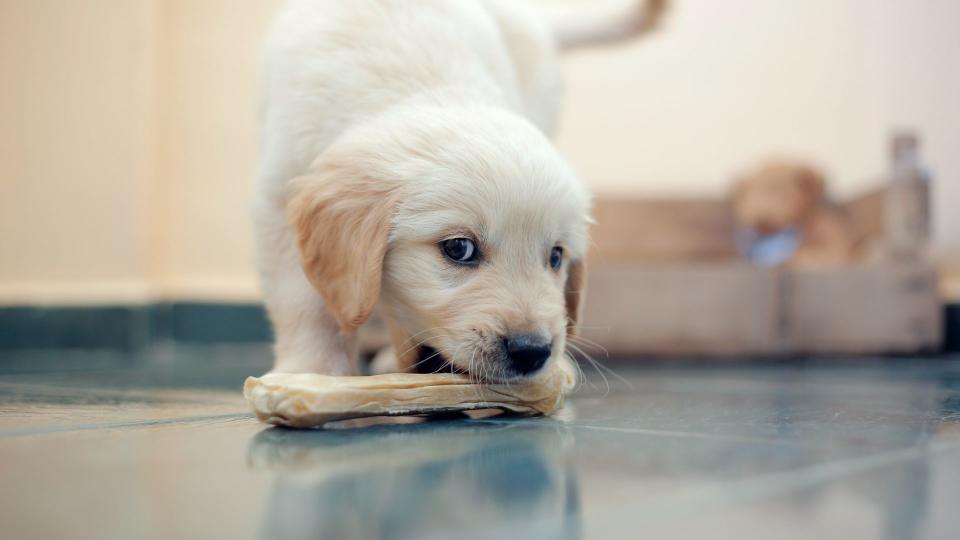
Instead of using punishment, help your puppy learn the correct behavior by consistently rewarding him for relieving himself outside. Small treats or bits of meat are great training rewards. For dogs that are not food-motivated, offering a favorite toy or plenty of petting may serve as a desirable reward. Timing is the key here: reward too soon, and you may distract your puppy from relieving themselves; reward too late, and they may not associate the act with the reward. Ideally, you should toss a treat to them right as they finish urinating, before they get distracted by all the sights and sounds outside. “It’s a testing process but it can be helpful to remember that dogs learn through positive reinforcement. They don’t learn through being told ‘no’,” says Sophie.
Remember, accidents happen!
Remember that no one is perfect. If your puppy has an accident in the house, use this opportunity to re-evaluate your training program and correct any mistakes. Did you miss any cues that he needed to go out? Was he left unsupervised? Fine-tuning your training program to your puppy’s individual needs will strengthen your bond and set your puppy up for success.
But most importantly, remember you can do this and so can your pup!
